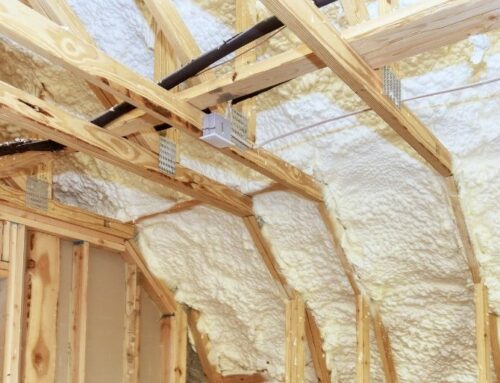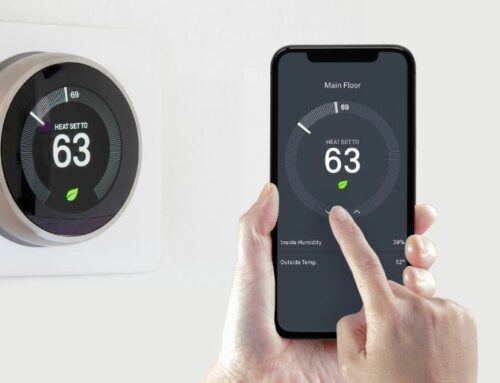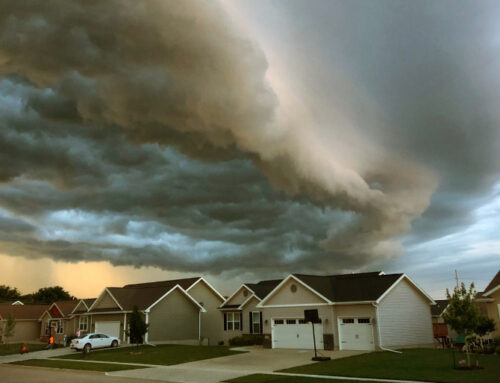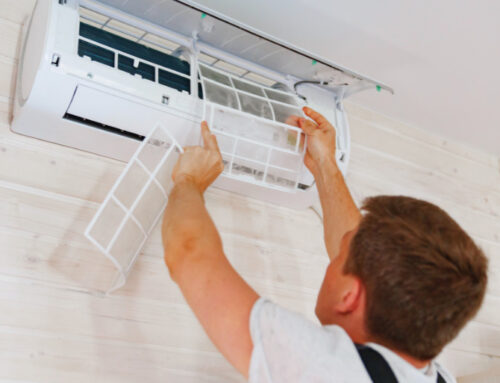Keeping your Iowa home warm in winter can be a balancing act between comfort and cost. With heating making up around 30% of your energy bill, according to the U.S. Department of Energy, many homeowners are looking for energy efficient heating systems to cut down on costs and improve comfort.
The good news is, upgrading to an energy-efficient heating system doesn’t just help you cut costs—it can also make your home more comfortable throughout Iowa’s unpredictable winters. While the upfront price may seem steep, the long-term benefits, including lower bills and fewer repairs, make it a decision worth considering for any homeowner.
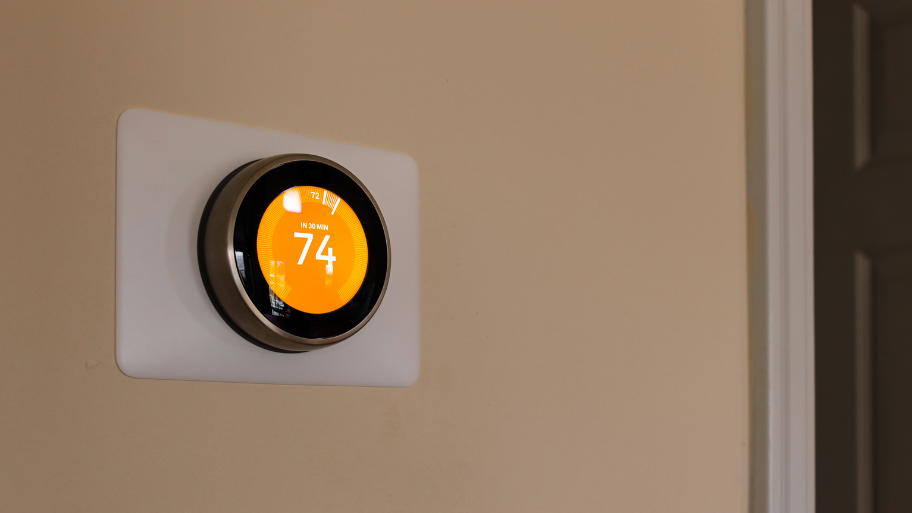
Why Choose Energy-Efficient Heating Systems for Iowa Homes?
In Iowa’s freezing winters, energy-efficient heating systems ensure your home stays warm without using more energy than necessary. These systems are designed to handle harsh conditions, offering consistent, reliable heat when you need it most.
Whether you have a small house or need the best heating system for a large house, the right energy-efficient system can help you save energy without sacrificing comfort.
What Makes a Heating System Energy-Efficient?
Energy-efficient heating systems are designed with key metrics in mind, which measure their ability to provide warmth without excessive energy use.
SEER Rating and Other Efficiency Metrics
The SEER rating (Seasonal Energy Efficiency Ratio) tells you how well a system uses energy over an entire season, especially for heat pumps. A higher SEER means your system works more efficiently, saving you money on energy bills. For Iowa homes, a SEER rating of 16 or above is a great choice for keeping your home warm without wasting energy.
When it comes to furnaces, the AFUE (Annual Fuel Utilization Efficiency) rating is key. This measures how much of the fuel your furnace uses is actually turned into heat. The higher the AFUE, the more efficient the system—furnaces with a 90% AFUE or higher are ideal for Iowa’s colder months.
The HSPF (Heating Seasonal Performance Factor) measures the efficiency of heat pumps when they’re in heating mode. Like SEER, the higher the number, the more efficient the system. For the best performance, look for an HSPF of 8 or more.
By understanding these ratings, you can make an informed decision and choose the right heating system to lower energy use without sacrificing comfort.
Types of Energy-Efficient Heating Systems for Iowa Homes
Choosing the right heating system depends on your home’s needs. Below are three of the most energy-efficient options to consider.
1. Furnaces
Furnaces, particularly natural gas models, remain a favorite choice for heating Iowa homes. High-efficiency furnaces on the market today can reach AFUE ratings of 90% or higher, ensuring most of the energy is efficiently converted into heat.
For Iowa’s freezing winters, these furnaces provide steady warmth without pushing up energy bills. Many new models are equipped with variable-speed blowers that adjust airflow based on your home’s specific needs, making them even more energy-efficient.
This feature not only enhances comfort but also helps optimize energy use during especially cold conditions.
2. Heat Pumps
Heat pumps are an excellent choice for Iowa homeowners who need a system that can both heat and cool efficiently. These systems move heat rather than generate it, which significantly reduces energy consumption.
Two common options for Iowa homes are air-source heat pumps and geothermal heat pumps. Geothermal units, in particular, tap into the earth’s constant underground temperature to provide heating, making them one of the most eco-conscious and cost-effective solutions available.
For the best performance in Iowa’s varying climate, it’s recommended to choose heat pumps with SEER ratings of 16 or higher and HSPF ratings of at least 8, ensuring year-round energy efficiency.
3. Boilers
Boilers, while less common than furnaces and heat pumps, can still be a highly efficient option for Iowa homes, especially if you’re heating with hot water or steam.
Newer, high-efficiency condensing boilers can reach AFUE ratings of 90% or higher, reducing fuel usage and providing steady heat. Modern boilers also come with smart controls that adjust temperatures based on outdoor conditions, further boosting efficiency.
They can pair well with radiant heating systems, which distribute heat evenly and reduce drafts.
Finding the Right Energy-Efficient Heating System for Your Iowa Home
Choosing the perfect energy-efficient heating system involves considering factors that suit Iowa’s climate and your home’s specific needs.
1. Considerations for Iowa’s Cold Winters
Iowa’s winters can be particularly demanding on heating systems. It’s crucial to choose one designed to perform efficiently even when temperatures dip below freezing.
For example, cold-climate heat pumps are a great option for maintaining performance during long periods of freezing weather. Whether you live in Ankeny, IA, and the surrounding areas, systems with high AFUE or HSPF ratings ensure your home stays warm without overusing energy, even during the coldest months.
2. System Size and Home Needs
The size of your heating system should match your home’s size and insulation levels. For example, finding the best heating system for a large house requires careful consideration of these factors.
A system that’s too small will struggle to keep up with heating demands, while an oversized unit may cycle on and off frequently, wasting energy. Professionals typically recommend a Manual J load calculation to determine the correct system size based on factors like square footage, number of windows, and insulation quality.
This ensures your system runs at peak efficiency, keeping you warm without excess energy waste.
3. Cost and Long-Term Savings
Though energy-efficient heating systems often require a higher initial investment, they can lead to substantial savings over time. Iowa homeowners may qualify for local rebates and federal tax incentives that reduce upfront costs.
Over the long term, these systems help lower monthly energy bills and require less maintenance, resulting in fewer repairs. Additionally, systems with higher efficiency ratings tend to last longer, offering further savings and peace of mind for homeowners seeking both comfort and cost-efficiency.
How to Boost the Efficiency of Your Heating System
Even with energy-efficient heating systems, following these simple strategies can further improve performance and savings.
1. Proper Maintenance
To keep your heating system working at its best, regular upkeep is key—especially when Iowa’s winters hit hard. Start by changing your filters every couple of months to maintain proper airflow.
Scheduling a professional check-up once a year ensures everything runs smoothly and catches any issues before they turn into costly repairs. Without regular care, dust and debris can build up, making your system work harder than it needs to and wasting energy.
With a little attention, you’ll keep your heating system efficient, lower your bills, and help it last longer.
2. Smart Thermostats
A smart thermostat is an excellent tool for improving how efficiently your heating system operates. With this technology, you can customize temperature settings for different times of the day, allowing your home to be comfortably heated only when necessary.
For example, you can set the heat to lower when you’re out and automatically warm the house before you get back. Some models even adjust themselves based on your daily routine, requiring less manual input over time.
In Iowa’s unpredictable climate, this feature helps reduce unnecessary energy use, leading to noticeable savings on your heating bills.
3. Insulation and Sealing Air Leaks
Improving insulation in your home is one of the best ways to keep your heating system efficient. Without proper insulation, warmth escapes quickly, causing your system to run harder than necessary. By adding insulation, particularly in critical areas like attics and walls, you can keep the heat inside your home.
Additionally, sealing any gaps around doors, windows, or ducts with caulk or weatherstripping helps prevent drafts and keeps the warm air from escaping. According to experts, fixing insulation and sealing leaks can lead to energy savings of up to 20%, making your home both more comfortable and cost-effective.
Energy-Efficient Heating Systems for Sustainable Living
Investing in an energy-efficient heating system is not only good for your home—it’s also a step toward more sustainable living. These systems reduce energy consumption by using less fuel or electricity, which lowers your household’s carbon footprint.
By choosing efficient systems like geothermal heat pumps or high-efficiency furnaces, you’re contributing to the reduction of greenhouse gas emissions while saving on energy bills.
Additionally, many energy-efficient systems are designed to last longer and require fewer repairs, meaning less waste over time. Sustainable heating solutions aren’t just about cutting costs—they’re about protecting the environment for future generations.
Need Expert Help? Contact Bryant Iowa for Energy-Efficient Solutions
Choosing the right energy-efficient heating system can be a bit tricky, but you don’t have to do it alone. The team at Bryant Iowa is ready to help you explore the best options for boosting your home’s energy efficiency and keeping it comfortable.
Whether you’re considering a new smart thermostat or looking to upgrade to a high-efficiency heating system, we’re here to offer guidance tailored to your needs.
Get in touch with us for expert recommendations and reliable installation services. Start saving energy today with solutions designed to fit your home perfectly.
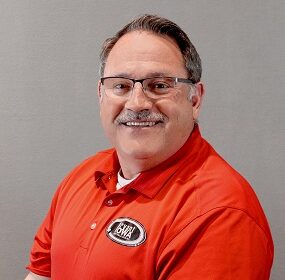
About the Author
For over 30 years, DuWayne McDaniel has been the trusted name behind Bryant Iowa Heating and Cooling in Ankeny, IA. With a Masters in HVAC and Hydronics, NATE certification, and EPA licensing, DuWayne brings unparalleled expertise to residential and commercial HVAC services. His commitment to 100% customer satisfaction has earned him the BBB Torch Award and made Bryant Iowa a Bryant Factory Authorized Dealer. DuWayne’s deep understanding of HVAC needs ensures year-round comfort for homes and businesses alike.

